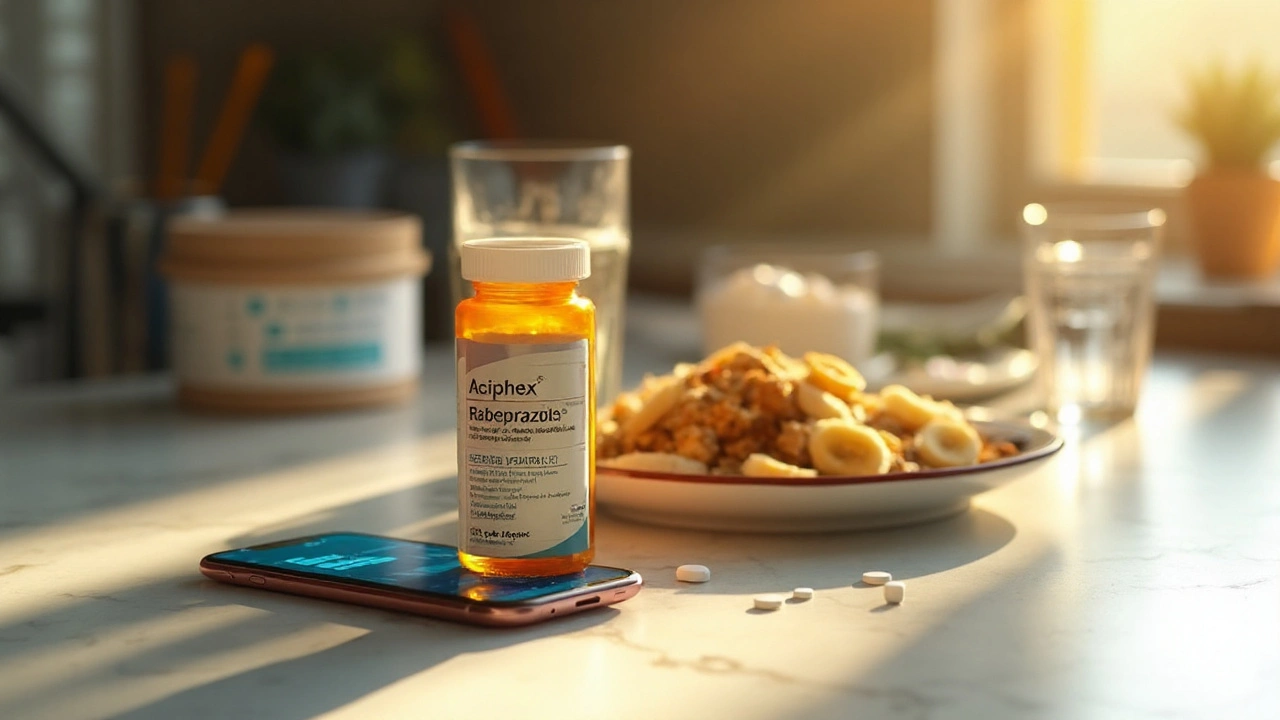GERD Treatment: Practical Ways to Beat Acid Reflux
If you’re tired of heartburn ruining meals, you’re not alone. GERD (gastro‑esophageal reflux disease) hits millions, but most people can tame it with the right mix of habits and meds. Below are real‑world steps you can start today, plus when it’s time to call your doctor for stronger help.
Lifestyle Fixes That Actually Work
First, look at what you eat and when. Heavy, fatty meals, chocolate, coffee, and citrus are classic triggers. Try to finish dinner at least three hours before bedtime and keep portion sizes modest. Small changes—like swapping fried snacks for a handful of almonds—can cut night‑time reflux dramatically.
Weight matters too. Even a few pounds off the waist can lower pressure on the stomach and calm the backflow. Aim for a realistic goal: lose 1‑2 % of body weight each month with a mix of walking, gentle strength work, and mindful eating.
Elevating the head of your bed is a simple hack. Raising the mattress 6‑8 inches (or using a wedge pillow) uses gravity to keep acid down while you sleep. It’s cheap, easy, and works for many people.
Medications and When to Consider Surgery
When lifestyle tweaks aren’t enough, over‑the‑counter antacids like Tums or Maalox give quick relief for occasional heartburn. For frequent symptoms, an H2 blocker (e.g., famotidine) or a proton‑pump inhibitor (PPI) such as omeprazole is usually the next step. PPIs reduce stomach acid production and are effective for most moderate‑to‑severe cases.
Talk to your doctor if you need a prescription PPI for more than 8 weeks, or if you notice side effects like bone pain or tummy bugs. Sometimes a short‑term taper is advised to avoid rebound acid production.
For people with severe GERD, a hiatal hernia, or complications like Barrett’s esophagus, surgery may be the answer. The most common procedure is laparoscopic fundoplication, where the top of the stomach is wrapped around the esophagus to stop reflux. It’s minimally invasive, has a short recovery, and many patients stop meds afterward.
Before opting for surgery, get a thorough evaluation: endoscopy, pH monitoring, and a stomach‑emptying study can pinpoint the exact cause and ensure the operation will help you.
Bottom line: start with easy lifestyle tweaks, add OTC or prescription meds if needed, and keep an eye on warning signs. If heartburn persists despite these steps, a gastroenterologist can guide you toward advanced testing or surgery.

Aciphex (Rabeprazole) Guide 2025: Uses, Dosage, Side Effects, and Alternatives
Clear 2025 guide to Aciphex (rabeprazole): what it treats, how to take it, side effects, interactions, and alternatives-plus NZ/US cost notes and pro tips.
Sep 1 2025




